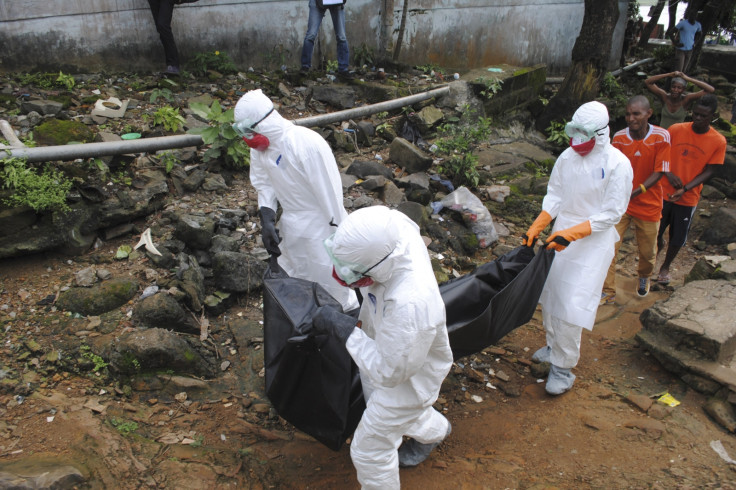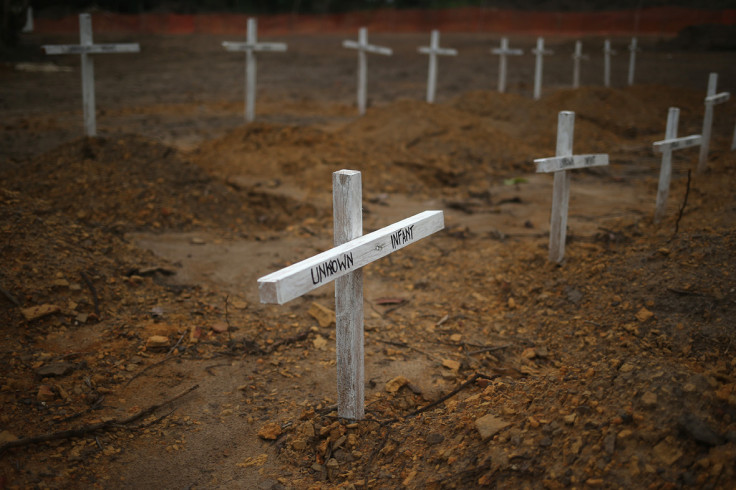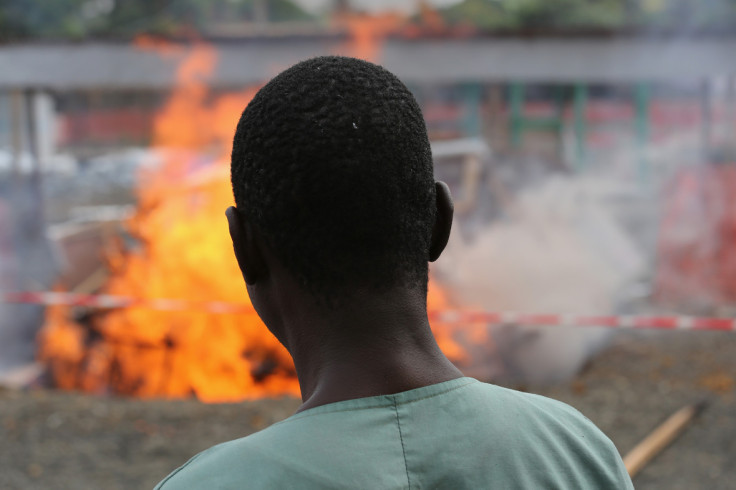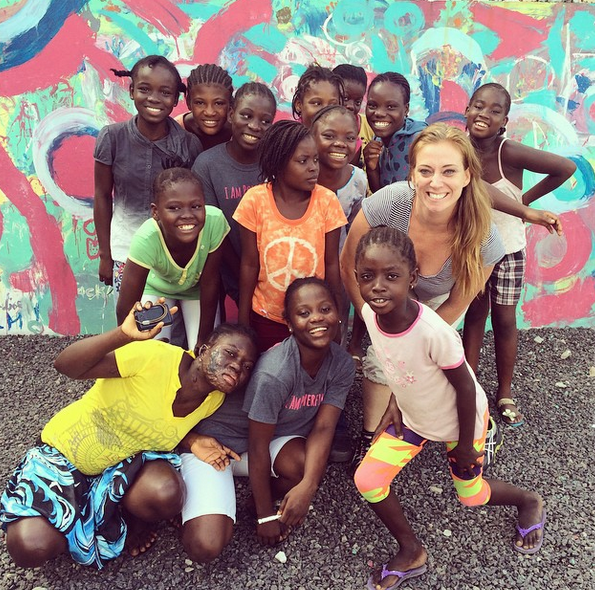An Ebola survivor speaks: 'They threw me in the death house, but I escaped'

They say Liberia is now free of Ebola, but a quick stroll around Monrovia shows that this is utter nonsense.
Yes the disease has been tamed, and there have been no new cases for the past two months. But the people of Liberia won't be 'free' of Ebola for years to come. Those who were struck down during the epidemic, or had to watch their loved ones writhing in agony, will live with them for the rest of their lives.
Every street of the Liberian capital is shrouded in its own tragedy, its own vestigial shadows of horror. The people are slowly adjusting to the reality of a life after Ebola, but the memories still burn fresh.
Few Monrovians suffered greater tragedy than Deedee, a housewife who lost her husband and baby and spent two weeks fighting for her own life. Her recovery was a miracle, achieved in spite rather than because of the authorities.
Deedee has now pulled through, and is bravely rebuilding her life, thriving in her new role as a single working mother. And she is ready to tell her story.
Before the disease knocked on her door, Deedee and her husband lived a happy, comfortable life with their five children, the oldest of whom was 15. He was a technician, an occupation which paid relatively well.
"I was a caretaker for the children in the house, the husband was the breadwinner" Deedee says. "We had a comfortable life, my husband made a good living. In the evening he came home and we would sit outside and talk with the neighbours, and socialise."
'From the time he got sick it was only three days later that he died'
Tragically, Deedee's husband was required to keep working during the epidemic. In early September, he was diagnosed with Ebola. Deedee doesn't know who he caught it from; with thousands of people succumbing every day, how could she possibly tell?

"From the time he got sick it was three days later that he died," Deedee said. "He must have been sick for a while but was too strong to complain of any symptoms.
"He was vomiting, he was sweating, he was very weak. We actually had to carry him to the Ebola Treatment Unit [ETU] in a wheelbarrow, the ambulance wouldn't come because it was the height of the outbreak in early September.
"From the day he got to the ETU, the next day he passed away."
The loss was devastating, but Deedee had no time to grieve; the horror was only just beginning. Almost immediately the rest of the family started to get sick. Within two weeks, Deedee's baby was critical.
'I was depressed, angered and worried - and there was an overall dread'
The nadir came on 19 September. Deedee's baby passed away, without even reaching the ETU. Again, the disease prevented her from grieving. Within hours, Deedee herself began to feel ill.
Asked to describe her symptoms, Deedee recalls: "I felt bad, my mind was troubled. I was depressed, angered and worried. But primarily it was weakness in the body, no appetite, vomiting too much. And there was an overall dread."

Within two days of that first bout of sickness, Deedee was diagnosed. To have any chance of living, she was told she had to go to the ETU. But there was nothing reassuring or helpful about the facility she was sent to. The doctors hadn't sent her to get help; they'd sent her to die. She was trapped in a waiting room to hell.
"I spent three weeks in the ETU" Deedee recalls. "My own children were there as well, they were in the same room, and no-one was there to take care of them. It made me feel very isolated.
"Eventually they brought another patient, that gave me some company. But then the patient passed away. No-one came; all they did was throw some bleach on the floor every so often. The small was whelming, the scent of ammonia and bleach. I saw over 100 people enter the ETU, and most of them died.
"When I look back on the ETU, the main feeling I have is that this was a death house. People were waiting for me to die or get better and leave."
'I had my children with me, they kept the hope'
Incredibly, Deedee didn't let the all-pervasive spectre of death overcome her; by early October she was fully recovered, able to walk and eat again. How did she manage this incredible turnaround? Why did she live when all around were dying?
The answer is simple. "I had my children with me" Deedee says. "They kept the hope." And seeing her family suffering alongside her stiffened her resolve; they needed her and she wasn't going to give in, no matter the odds.

"We were thinking 'we're not medical doctors nor a health organisation, we don't know what to do. But we noticed that no-one else knew what to do and if we didn't do something, then all of our students could die."
Read the story of Ebola aid worker and TIME Person of the Year Katie Meyler here.
Even when Deedee had recovered, the agony kept coming. She recalls that, with the prospect of a free bed, the ETU's managers suddenly took an interest in her, more so than they ever had when she was dying.
"The people asked me to leave the ETU. I wouldn't leave, I stayed in the ETU until the children were recovered. They were angry with me and tried to force me to leave but I told them I had nothing apart from my children.
"The doctor threatened me, calling me hard-headed, telling me that if I didn't leave something bad would happen to me. They needed the bed for other patients. I still have bad feelings toward that doctor."
'I still feel bad to this day but I have plans for the future'
In the end, the four children who entered the ETU all recovered. Deedee could leave; better still, More than Me bought bicycles for her children, and gave her a job taking care of the Hope 21 guesthouse, looking after quarantined children who had been afflicted with Ebola. The myriad jobs which came with this position gave Deedee fresh focus, diverted her mind from the horrific ordeal she had gone through.
The disease has left its mark on the children who survived, physically as well as mentally. "My smallest boy has trouble with his eyes, and they say this is common with survivors" Deedee says. "The 11-year-old boy is having joint pain, complaining about joint pain. The girl is being taken care of in the place where I work.
"But they are resilient, as are most Liberian children. Their behaviour hasn't changed."
And what of Deedee herself? "I still feel bad to this day but being around the children helps. I plan on opening a larger business, I've already started a business, selling small goods."
Amidst all the horror stories left strewn around Monrovia, the litany of lives lost and families fragmented, people like Deedee are a ray of light. These brave will never be truly free of Ebola, but hopefully the damage will not be terminal.
IBTimes UK is making regular donations to More Than Me. You can donate too by clicking here.
© Copyright IBTimes 2025. All rights reserved.




















